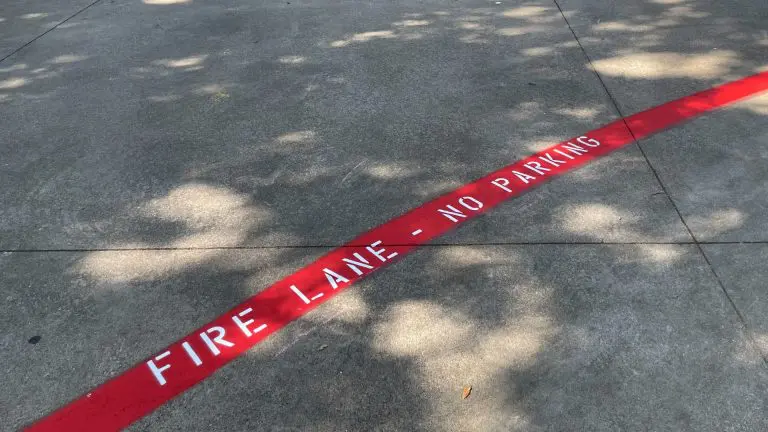Electric fire installation regulations in Austin, Texas require proper grounding and electrical safety measures. These regulations ensure safe operation and compliance with local building codes for electric fire installations in residential and commercial spaces.
Prior to installation, it is crucial to verify the electrician’s credentials, adhere to manufacturer guidelines, and obtain any necessary permits to ensure a successful and safe installation process. Compliance with regulations not only guarantees safety but also helps to maintain the efficiency and longevity of the electric fire unit.
Following these guidelines will help avoid any potential hazards and ensure that the electric fire installation is carried out effectively while meeting all legal requirements.

Credit: www.sweetprocess.com
- The Importance Of Electric Fire Installation Regulations
- Understanding Electric Fire Installation Guidelines
- Diy Vs. Professional Installation
- Navigating Permit And Certification Processes
- Adhering To Safety Guidelines And Best Practices
- Frequently Asked Questions Of Electric Fire Installation Regulations
- Conclusion
The Importance Of Electric Fire Installation Regulations
Electric fire installation regulations are crucial for ensuring the safety and compliance of electric fireplaces in residential and commercial spaces. These regulations provide guidelines and standards that must be followed to prevent hazards and ensure the proper functioning of electric fireplaces.
Safety First
- Electric fire installation regulations prioritize safety by outlining specific requirements to avoid fire risks.
- Adhering to safety regulations minimizes the chances of electrical accidents and fire outbreaks.
- Strict safety protocols protect occupants and property from potential dangers associated with electric fires.
Legal Compliance
- Following electric fire installation regulations ensures compliance with legal standards and building codes.
- Meeting regulatory requirements prevents legal liabilities and penalties.
- Legal compliance guarantees that the electric fireplace installation is done in accordance with industry standards.
Understanding Electric Fire Installation Guidelines
Understanding Electric Fire Installation Guidelines involves complying with specific regulations and standards to ensure safe and efficient installation. It is crucial to adhere to these guidelines to prevent any potential hazards and ensure the proper functioning of electric fireplaces.
Clearance Requirements
Clearance requirements are essential to maintain safety standards when installing electric fireplaces. According to the regulations, a minimum clearance of 3 feet is necessary around the fireplace to prevent any overheating or potential fire hazards.
Electrical Specifications
- Ensure that the electric fireplace is hardwired to meet safety and performance standards.
- Verify that the electrical outlet for the fireplace is grounded and meets the voltage requirements.
- Consult a professional electrician to handle any electrical wiring and installations to guarantee compliance with regulations.
Diy Vs. Professional Installation
When it comes to installing electric fires, you may be torn between tackling the task yourself or seeking professional assistance. Both options offer distinct advantages, and understanding the differences can help you make an informed decision. Let’s delve into the ease of self-installation and the benefits of professional assistance for electric fireplace installation.
Ease Of Self-installation
Installing an electric fireplace on your own has its advantages, especially if you have experience with electrical work and feel comfortable handling the installation process. It can be a cost-effective option and offers the flexibility to complete the installation at your own pace. However, it’s crucial to understand and adhere to the regulations and safety guidelines to ensure the installation is carried out correctly and safely.
Benefits Of Professional Assistance
Seeking professional assistance for electric fireplace installation comes with its own set of benefits. Hiring a professional ensures that the installation is compliant with regulations and safety standards. Professionals have the necessary expertise and experience to handle the installation efficiently, reducing the risk of errors and potential safety hazards. Additionally, professional installers can offer valuable guidance on the best placement and provide insights into maintenance for optimal performance.

Credit: resumaker.ai
When it comes to installing an electric fire, it’s important to understand the permit and certification processes involved. These processes ensure that the installation meets safety standards and complies with local regulations. In this section, we will explore the permit requirements and certification considerations that are essential for a successful and compliant electric fire installation.
Permit Requirements
Before installing an electric fire, it is crucial to determine the permit requirements set by your local authorities. Each jurisdiction may have different regulations and permit procedures in place. To help you navigate this process, here are some key steps to consider:
- Research: Start by researching the permit requirements specific to your location. This can typically be found on your local government website or by contacting your building department.
- Documentation: Gather all the necessary documents required for the permit application. This may include a detailed installation plan, product specifications, and any other relevant information.
- Application Submission: Submit your permit application to the appropriate department along with the required documentation. Be sure to follow their guidelines for the submission process.
- Inspection: Once your permit is approved, schedule an inspection with the designated authority. They will assess the installation for compliance with electrical codes and safety standards.
- Final Approval: If the inspection passes, you will receive the final approval. This validates that your electric fire installation meets all the necessary requirements.
Certification Considerations
Aside from permits, certification is another crucial aspect of electric fire installation. Certification ensures that the product and its installation adhere to industry standards. Here are some considerations regarding certifications:
- Product Certification: Ensure that the electric fire unit you purchase is certified by a reputable organization, such as Underwriters Laboratories (UL) or Intertek. These certifications indicate that the product has undergone rigorous testing and meets safety standards.
- Professional Certification: Hiring a certified electrician or fireplace installer is highly recommended. These professionals have the necessary expertise and training to ensure a safe and compliant installation.
- Insurance Requirements: Some insurance providers may require proof of certification for electric fire installations. Check with your insurance company to understand their specific requirements.
Navigating the permit and certification processes can seem daunting, but it is necessary to guarantee the safety and legality of your electric fire installation. By understanding the permit requirements and considering certifications, you can ensure a seamless and successful installation while adhering to all regulations.
Adhering To Safety Guidelines And Best Practices
When it comes to installing an electric fire, safety should always be the top priority. Adhering to safety guidelines and best practices is essential to ensure that the installation is carried out correctly and without any potential hazards. In this section, we will discuss two key aspects of electric fire installation safety: Wiring and Location Safety and the Importance of Regular Maintenance.
Wiring And Location Safety
Proper wiring and selecting the right location for your electric fire are crucial steps in ensuring a safe installation. Here are some essential guidelines to follow:
- Make sure that the wiring and electrical components used for the installation are up to code and meet safety standards. It’s always recommended to consult a professional electrician to handle the wiring process.
- The electric fire should be installed on a dedicated circuit to avoid overloading the electrical system. This prevents the risk of electrical failures or fire hazards.
- Ensure that the electric fire is safely grounded to minimize the chance of electrical shocks and surges. A properly installed ground connection protects both the appliance and the users.
- Keep the electric fire away from flammable materials, such as curtains, furniture, or wooden structures. This prevents the risk of fire accidents and ensures the surrounding area stays safe.
- Check the manufacturer’s guidelines for minimum clearance requirements. Providing adequate space around the electric fire helps with heat dissipation and prevents overheating.
- If installing a wall-mounted electric fire, ensure that the wall structure can support the weight of the appliance. Consult a structural engineer if needed.
Importance Of Regular Maintenance
Maintaining your electric fire on a regular basis is crucial for both its performance and safety. Here’s why regular maintenance is essential:
- Inspect the power cord and electrical connections periodically to ensure they are not damaged or worn out. Any frayed or exposed wires should be repaired or replaced immediately.
- Clean the electric fire regularly to remove any dust or debris that may accumulate on the heating elements or vents. This helps maintain optimal performance and prevents overheating.
- Check the condition of the heating elements and replace them if they show signs of damage or malfunction. Damaged heating elements can lead to uneven heat distribution or complete failure.
- Test the safety features of the electric fire, such as the automatic shut-off function, if applicable. This ensures that the appliance will turn off in case of any abnormal operation or overheating.
By following these guidelines and performing regular maintenance, you can ensure the safe operation and longevity of your electric fire. Remember, it’s always better to consult a professional if you have any doubts or concerns during the installation or maintenance process.

Credit: everlinecoatings.com
Frequently Asked Questions Of Electric Fire Installation Regulations
Do I Need An Electrician To Install Electric Fire?
Yes, you should hire an electrician for installing an electric fire to ensure safety and proper wiring.
What Are The Requirements For An Electric Fireplace?
Electric fireplaces can be installed easily by yourself, no professional electrician needed. No chimney or exhaust required.
How Much Clearance Does An Electric Fireplace Need?
An electric fireplace needs 3 feet of clearance for safe installation. No permit or venting required.
Can You Install An Electric Fireplace Anywhere?
Yes, electric fireplaces can be installed anywhere without the need for a chimney or exhaust system. You can even install it yourself as it’s relatively easy.
Can I Install An Electric Fireplace By Myself?
Yes, you can easily install an electric fireplace without the need for professional assistance. It’s a simple process since it doesn’t require any exhaust or chimney.
Conclusion
Understanding and following electric fire installation regulations is crucial to ensure safety and compliance. From the electrical requirements to safety guidelines, it’s important to adhere to these regulations for a successful installation. By following the proper procedures, you can enjoy a hassle-free and secure electric fireplace setup in your home or commercial space.